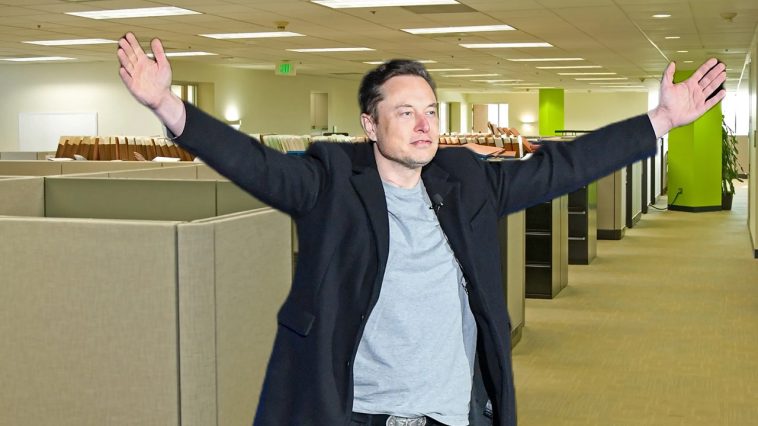LISTEN HERE:
Elon Musk, the innovative entrepreneur and CEO of Tesla, has persistently called upon Twitter employees to return to the office on a full-time basis.
Despite the potential consequences to their employment, the company’s offices remain largely vacant. Musk’s presence at Twitter has established a ‘culture of fear,’ but it has not been sufficient to encourage employees to resume regular office attendance.
Shortly after Musk acquired Twitter seven months ago, he overturned the remote work policy implemented during the early stages of the pandemic by the company’s co-founder and former CEO, Jack Dorsey.
While Twitter was the first major tech firm to allow permanent remote work in response to the pandemic, Musk’s ownership led to a shift back to office-based work, marking one of several changes to Twitter’s employee benefits and policies.
In the tech and media industry, the implementation of new policies demanding a return to the office has met resistance and protests from workers. The management style described as a ‘culture of fear,’ comprising frequent layoffs and what is referred to as ‘demon mode,’ may have reached its limit.
With approximately 90% of Twitter’s full-time employees terminated or laid off since Musk’s takeover, the remaining workers have become accustomed to the notion that their jobs are tenuous. One employee even remarked that at Twitter, one must accept that ‘every day could be your last.’
Despite diligently providing management with weekly and monthly progress reports, employees are often subjected to layoffs and arbitrary firing. Consequently, workers have come to the realization that Musk is an insatiable boss who may never be satisfied, prompting them to take the risk and work from home.
Another prevailing concern among workers is the diminishing number of engineers at Twitter. With only around 500 engineers left, Musk and his management team now understand the importance of employee retention.
The newly appointed CEO, Linda Yaccarino, is striving to motivate employees to willingly return to the office rather than enforcing it. Yaccarino recently organized ‘Tea Time,’ an informal all-hands meeting, where she personally connected with staff in both the San Francisco and New York offices.
Her goal is to generate genuine interest in coming back to the office, which deviates from Musk’s approach. Despite these efforts, sources have noted that the office still feels relatively empty, despite the reduced staff. Additional floors have been consolidated, and unused spaces have been repurposed or sublet.
It is no surprise that many employees continue to work from home regularly, even including some HR personnel. This revelation has left some employees at Twitter dissatisfied, as they find it perplexing that one of the key individuals responsible for enforcing the full-time office return policy is also working remotely.
Musk has made it abundantly clear that full-time return to the office is mandatory, unless an exemption is granted. In recent weeks, managers have been required to conduct audits of employees’ remote work practices by examining office badge data.
These audits serve the dual purpose of monitoring productivity and assisting Musk and his management team in deciding which offices to close or sublet.
Musk has been actively closing and downsizing Twitter offices, and it is likely that the company will maintain U.S. offices only in San Francisco, New York, and Los Angeles, as previously reported. Before Musk’s acquisition, Twitter boasted 18 offices across the country.


